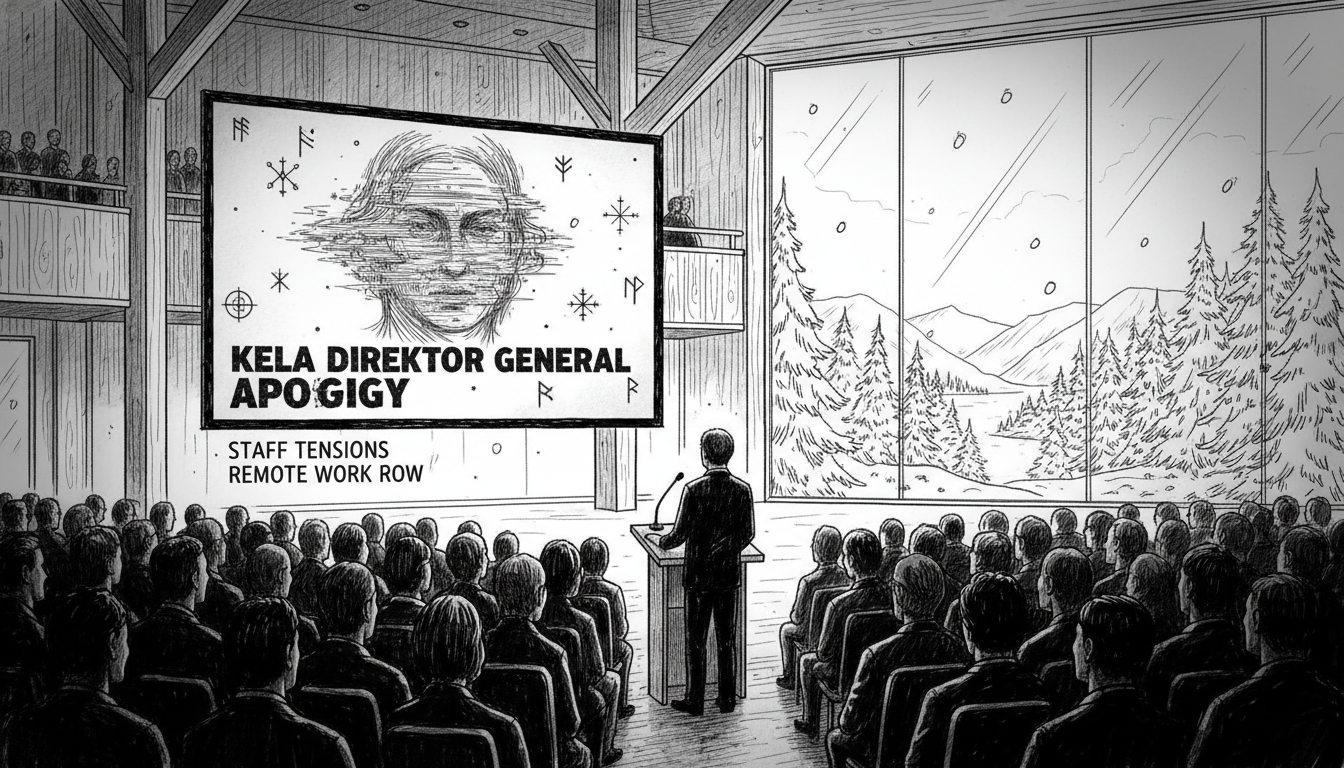Finland's Social Insurance Institution director general Lasse Lehtonen has released a video apology addressing recent controversies with agency staff. The internal message, dated for Friday, November 14, shows Lehtonen expressing regret for what he described as poorly considered word choices during recent interviews. This development comes amid growing dissatisfaction within the national social security agency.
The apology follows reports of widespread employee discontent that surfaced last week. Relations between management and staff have deteriorated further after Lehtonen made public comments about remote work and employees that many workers interpreted as dismissive. The director general previously stated that Kela need not worry about staffing issues because there is ample workforce availability.
Lehtonen assumed leadership of Kela in late April, and his management style has been perceived as authoritarian. Documents obtained by media outlets reveal deeper dissatisfaction with the agency's leadership beyond the recent public comments. This situation reflects broader tensions in Finnish public sector management.
Remote work policies form a central part of the dispute. New guidelines would require employees to work from office locations either one day per week or four times monthly. This policy change creates practical challenges because Kela has recently closed multiple offices across Finland as cost-saving measures. Some employees now face commutes of hundreds of kilometers to reach their nearest office.
The controversy highlights Finland's ongoing struggle to balance modernization with equitable public service delivery. Kela manages essential social benefits including unemployment, parental, and sickness allowances for Finland's 5.5 million residents. Agency operations directly impact nearly every Finnish household, making stable leadership crucial.
This situation mirrors challenges facing other Nordic welfare institutions adapting to post-pandemic work patterns. Sweden and Norway have faced similar debates about public sector remote work policies. The Kela dispute represents a test case for how Nordic countries will manage their renowned social security systems through changing work environments.
Employee unions have expressed concern that the remote work requirements could disproportionately affect staff in rural areas. Finland's geography presents unique challenges, with population centers separated by vast distances. The potential for lengthy commutes raises questions about work-life balance and environmental impact.
The apology video represents an attempt to de-escalate tensions, but underlying issues remain unresolved. The coming weeks will show whether this gesture improves workplace relations or if deeper structural changes are needed. Kela's ability to provide consistent service across Finland depends on maintaining a motivated and stable workforce.
International observers should note that this situation reflects neither systemic failure nor unique Finnish problems. Rather, it demonstrates the universal challenges facing public institutions worldwide as they adapt to new work realities. The outcome at Kela may influence similar debates throughout the Nordic region's public sectors.

